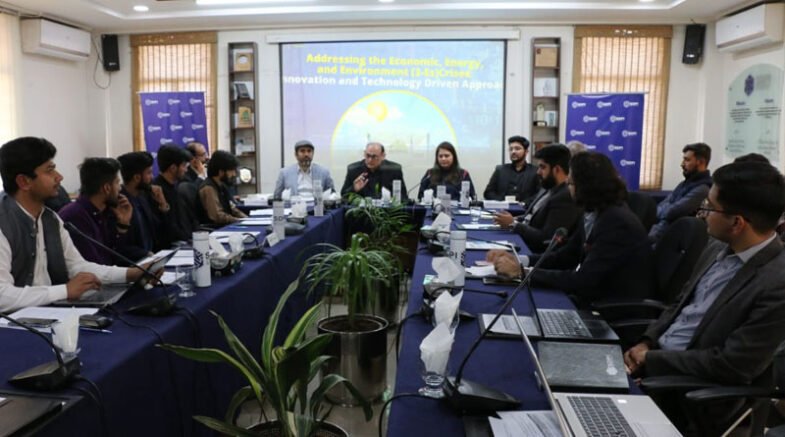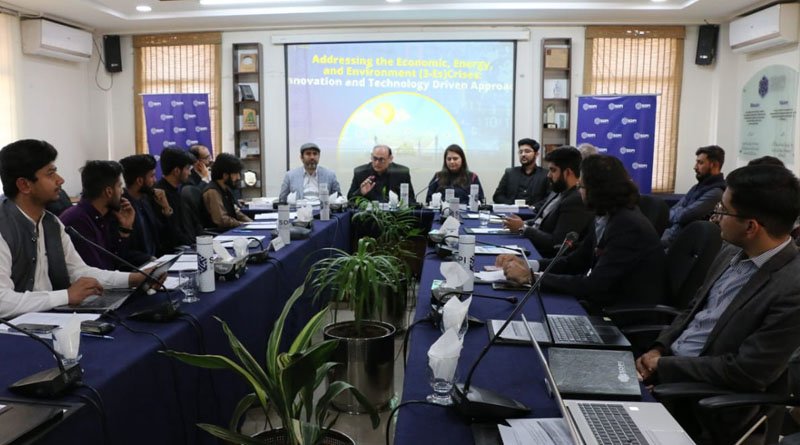Through this plan, KE hopes to fulfil its 30-by-30 goal, calls for a 30% increase in renewable energy use, a 30% increase in consumer base, and a 30% decrease in power outages.

K-Electric has submitted an investment plan of approximately 484 billion for the next seven years for its transmission and Distribution Segments in NEPRA, which is more than the investment KE has made in the last 17 years.
Sadia Dada, Chief Marketing and Communications Officer at K-Electric, spoke at a seminar titled “Addressing the Economic, Energy, and Environment (3-Es) Crises: Innovation and Technology Driven Approach” organised by SDPI in Islamabad.
Sadia Dada continued by stating that Karachi’s power demand is increasing exponentially and that, according to projections from the utility, the city’s population will increase to 5 million by 2030, and its power demand will be at least 5,000 MW.
She remarked that KE focuses on system dependability, customer base expansion, and technology adoption to drive greater efficiency and automation in the process, as well as adding a sizable share of renewable energy to its power mix to support the Government’s objectives to decrease the consumption of imported fuel and benefit the environment.
Through this investment plan, KE hopes to fulfil its 30-by-30 goal, which calls for a 30% increase in renewable energy use, a 30% increase in consumer base, and a 30% decrease in power outages.
In his keynote address, Dr. Hassan Daud Butt, Senior Advisor and Research Fellow at SDPI, stressed the importance of the relationship between energy, environment, and economy for the socioeconomic development of society, particularly given how stressed out the environment is.
He emphasised the importance of society, behavioral adjustments, and thoughtful consideration of novel technological and legislative solutions as a means of resolving the current crisis.
According to Muhammad Basit Ghauri, Program Officer at Renewables First, Pakistan has struggled to phase in the role of the private sector and needs proper attention. He placed emphasis on demand-side management through innovation to effectively manage the energy peak load and strengthened the connections between academia and industry to support innovations driven by industry demand.
In order to meet the rising demand for energy, Mr. Amer Zia, Chief Distribution Officer, K-Electric, emphasised that the efficiency of primary and secondary energy sources must be prioritized unless access to tertiary energy sources is increased. He emphasised the importance of improving data quality in order to make solid, effective, and wise decisions.
He said K-Electric has introduced a number of cutting-edge technologies, including smart metres and Geographic Information Systems (GIS), and that more sophisticated distribution management systems are also on the way.
In order to address the energy intensity and address the energy crisis, Asad Mahmood, an expert in EE&RE, emphasised the necessity of establishing energy conservation cells across public and private energy distribution companies.
Energy poverty will be brought on in the future, he claimed, as a result of rising resource competition and rising energy costs as per capita energy consumption rises. He emphasised the need for public energy companies to align their standard industrial classification codes with those of the Bureau of Statistics in order to accurately reflect economic activity in billing, collect data, and bill industries.
He emphasised the need for a realistic review of our NDCs as we get closer to 2030 in order to spur progress towards their fulfilment. He emphasised that getting access to international climate financing depends on reducing grid emissions.
Dr. Khalid Waleed, a research consultant for SDPI, believes that the triple E crisis is caused by our energy choices, and suggests that Pakistan negotiate debt swaps to reduce its exposure to these two types of debt. This would help it adapt to climate change, support the switch to clean energy, and lessen its reliance on imported fuels.
Mr. Ubaid ur Rehman Zia, Senior Research Associate at SDPI, has argued that Pakistan has been using a “short-sighted” and “just-in time approach” to address its energy security concerns.
This has led to an economic trap in the form of increasing circular debt, high-capacity payments, and limited power evacuated capacity. To maintain the cost competitiveness of renewable energy-based systems, it is critical to de-risk investments, provide regulatory and policy support, improve credit worthiness for RE developers, and establish clean demand signals.
